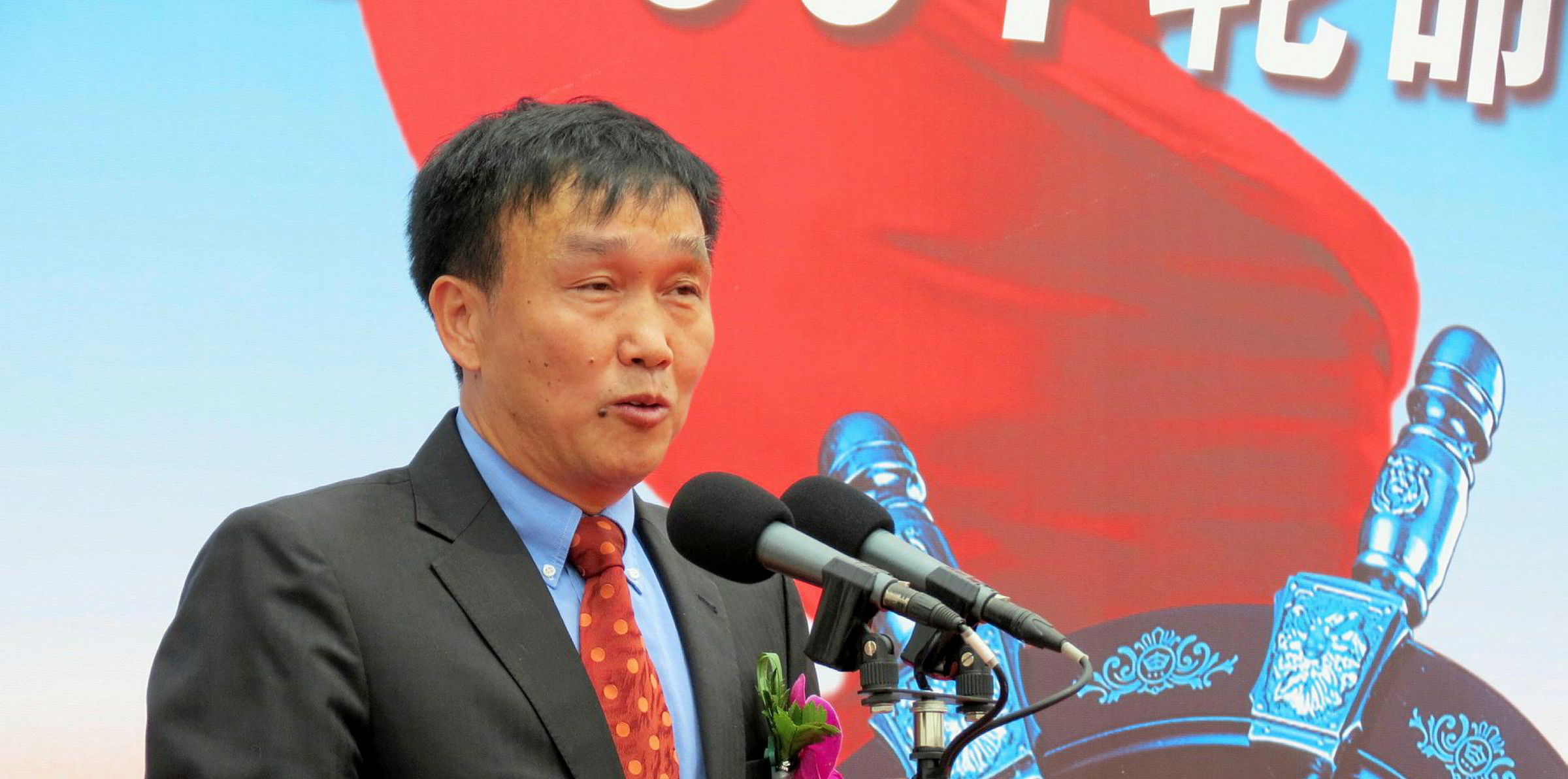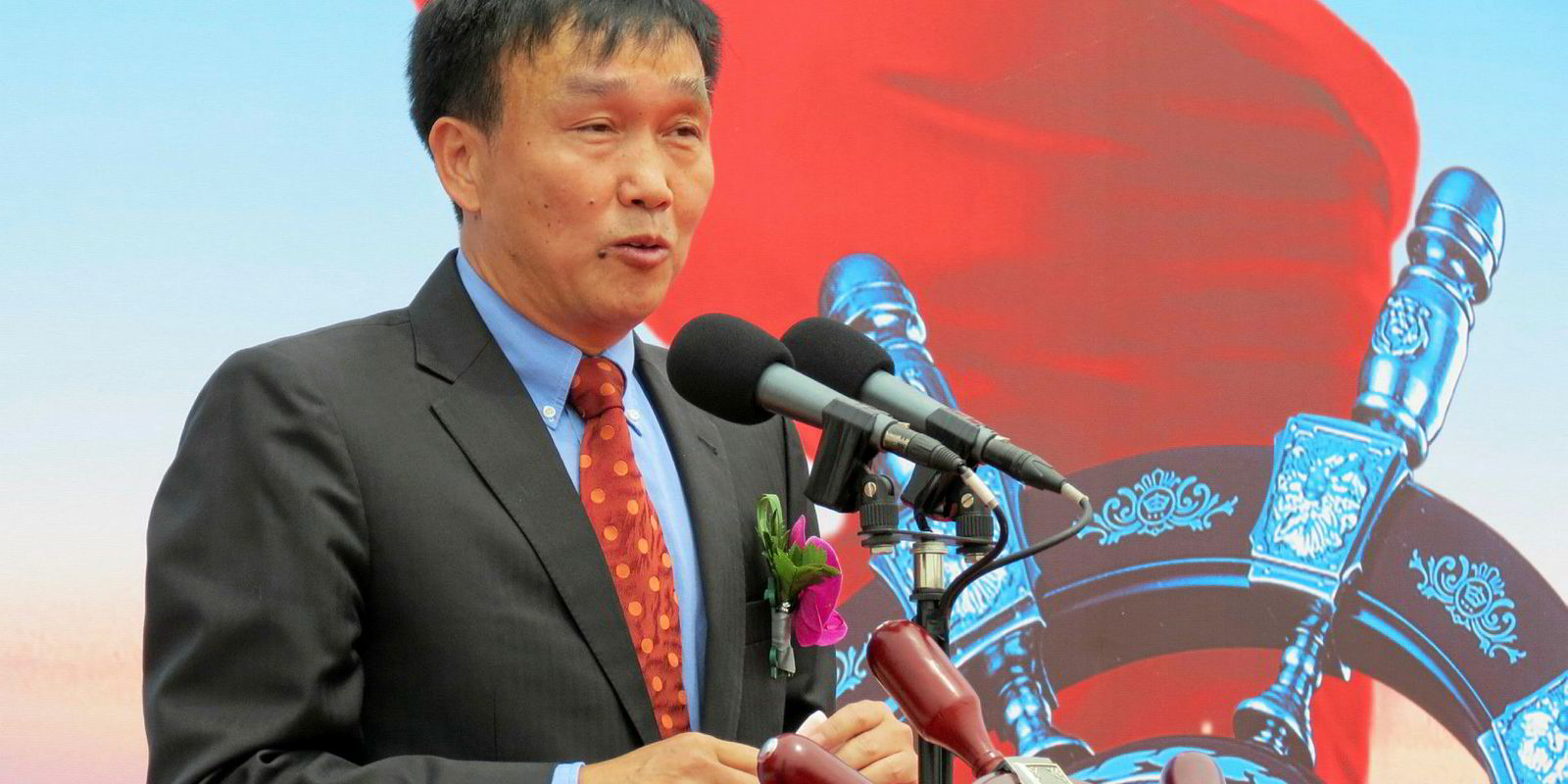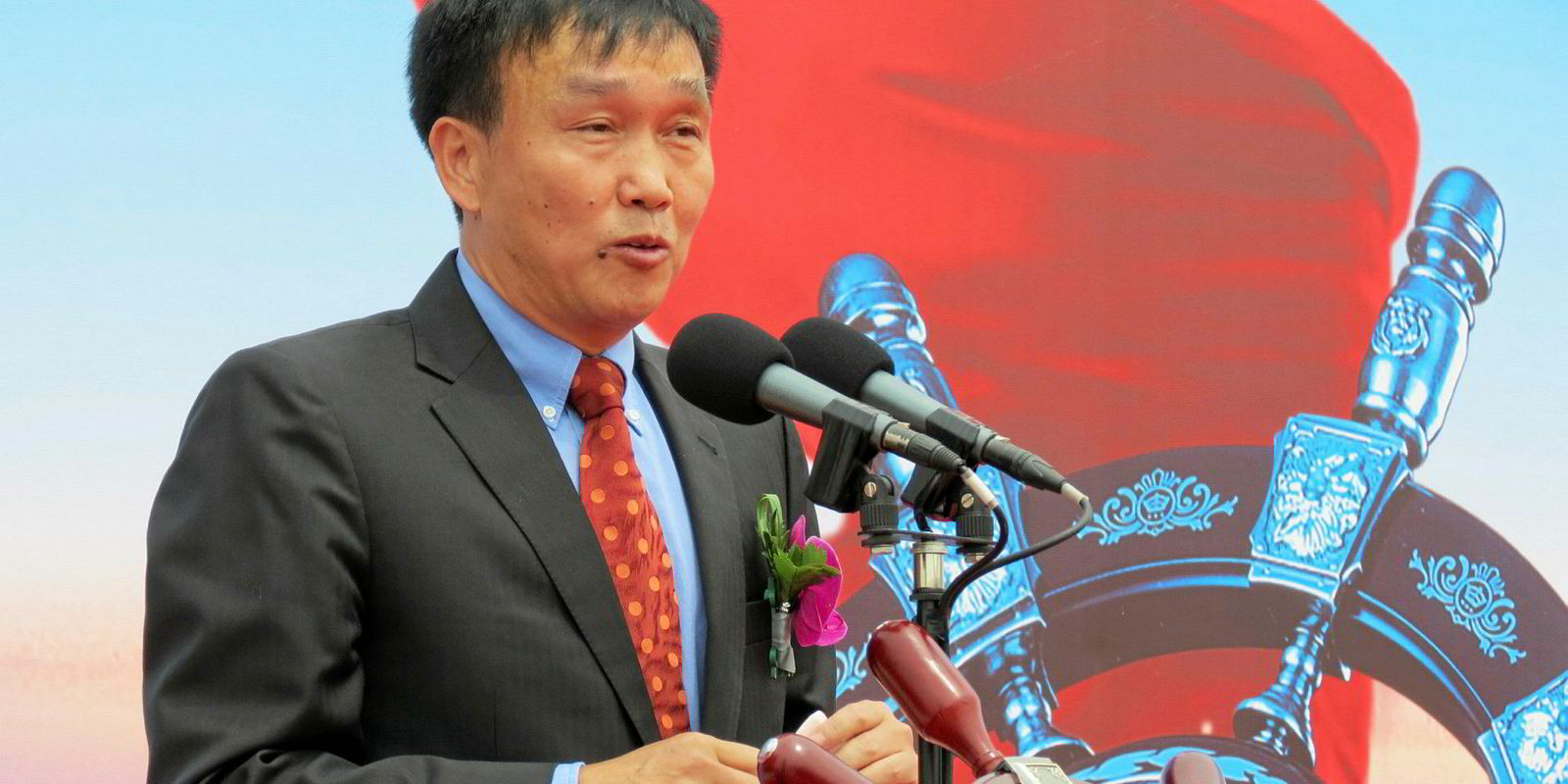The stalled spin-off of Sinochem International’s chemical tanker and tank container subsidiary appears to be back in motion after the government-approved bidder made a sudden reappearance in Shanghai.
The visit comes at a time when politics is putting limits on the company’s freshly announced newbuilding order for domestic chemical tankers.
Coal billionaire Du Jiangtao’s mid-October visit to Sinochem International came as a surprise to company executives. But since then, Sinochem sources say that officials of his stock-listed Inner Mongolia Junzheng Energy & Chemical Co have been in regular contact with their takeover candidate, chemical tanker arm Sinochem International Logistics (SIL).
The process had been stalled since at least June after Du was said to be among Inner Mongolia Communist Party officials and tycoons under disciplinary investigation.
Scepticism about deal
That development suited many in Sinochem, who have been sceptical about Du. Some have been pinning their hopes on a possible China Cosco Shipping takeover of SIL, along with its operations and managers.
Du’s bid has been more popular with the selling parent, Sinochem International, than with SIL.
Despite the resumption of activity, observers say financial approvals from foreign banks remain a big hurdle.
Du and Junzheng enjoy strong support from the Inner Mongolian finance sector, including the regional branch of Industrial and Commercial Bank of China.
But they are unknown quantities for Sinochem’s international ship-finance partners, which include Bank of America, Australia’s ANZ, Spain’s Santander and China’s ICBC Leasing and Bank of Communications Financial Leasing.
“Sinochem International hopes to close a deal before the end of the year, so both parties are doing their best to push ahead,” said one person with insight into the progress of the deal. “But the buyer has to resolve the bank issue before a closing can take place.”
China’s central government-owned companies and their subsidiaries are not flogged off on the open market or through investment banks but by a formal bidding process run by Beijing’s ultimate shareholding body, the State-owned Assets Supervision and Administration Commission of the State Council (Sasac).
Late last year, the relatively unknown Du made headlines when Junzheng won Sasac approval to take over SIL. But completion of the deal has been elusive.
In March, TradeWinds revealed that SIL executives were threatening to walk out rather than work for the new owner, and that foreign financiers were withholding necessary approvals of a change of ownership.
In June, with the disappearance of Du amid the corruption investigation, the proposed acquisition was put on hold entirely. Meanwhile, SIL has been unable to make capital investments because of the uncertainty about its future ownership structure.
This week, news emerged of SIL’s first newbuilding order since the spin-off process became known last year.
Newbuilding order
It has placed an order at China Shipbuilding Industry Corp yard Wuchang Shipbuilding for up to four 7,200-dwt chemical tankers for domestic trading, with delivery scheduled for 2020.
However, Sinochem sources tell TradeWinds that the lack of government trading permission has limited that order to a single firm ship plus three options.
“We tried to order more, but the government would only give us one licence,” a company official familiar with the deal said.
“The Chinese government controls the size of the total domestic fleet, and for a long time we have been unable to win new licences for domestic trading.
“But government policy can change very quickly, so maybe the Ministry of Transport will issue more licences next year and we can exercise the options.”
The price of the potential four-ship order has not been disclosed.
Like other chemical tanker owners, SIL has struggled with a difficult market that has contributed to its parent’s wish to sell.
But it has not been unprofitable overall. TradeWinds understands that the company delivered a positive financial result last year, thanks to its tank container operations.





